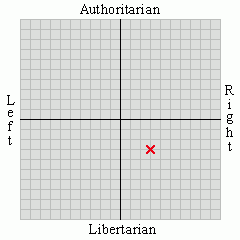Woke up early this morning and began to peruse the online Telegraph while trying not to burst out laughing and wake up Mrs S. Prince Charles and various others seem to have been complaining about various things pertaining to 'the death of the countryside', the dearth of fast Internet, the destruction of 'change' etc.
What these folk fail to appreciate is that the countryside has changed many times over the past few thousand years and yet the land still seems to be there. I personally know places where field boundaries have not changed since before the Enclosure acts and before.
Anyone with even the faintest appreciation of Archaeology will be able to 'read' a landscape and identify features which indicate the presence of many 'lost' villages and farmsteads. A lot of folklore often wrongly attributes the loss of said villages to something like the 'Black Death' when the truth of the matter can be found alluded to in Parish records and contemporary accounts. Industrialisation, the Enclosure acts of the 1700's, Landlords throwing tenants off their land for economic reasons like creating sheep pasture. The Spencer (Relatives of Saint Diana, or so I'm told) family from Wormleighton in Warwickshire seem to have been rather good at this back in the late 1500's. The dissolution of the monasteries was another, monasteries at the time being conclaves of early industrial activity. With a monastery gone, the villagers, serfs, villeins and cottars that served it had to move on, be moved on or starve. Generations could be uprooted by a change in ruling dynasty and ownership of a local manor. Earlier in English history, both pre and post conquest, raiding warbands of whatever faction would lay waste to whole communities, never mind the Vikings or Saxons.
My point is that the British countryside changes, and you either embrace that change or suffer. Current 'predations' include various botched government interventions (Foot and mouth) put a number of friends of mine out of business. Eco-Warriors put people out of agricultural business and ironically force food production into areas where they aren't so fussy about 'animal cruelty'. I will cite a particular poultry farming friend who was having trouble with his contracted feed supplier bringing him poor quality feed. The nature of his contract meant he couldn't source another feed supplier that year. Said poor quality feed resulted in vitamin deficiencies in his birds which resulted in brittle leg bones. A bunch of these soi-disant Eco-warriors heard that he was having trouble of this nature, did their customary hundred metres conclusion jump, and besieged his premises making accusations of 'animal cruelty'. On several occasions said eco-wariors let his stock out, where the local foxes and predators had a field day on the 'liberated' fowl. A year later he sold up, his farm was converted into someone's country palace, and the land is in the process of being parcelled out to 'developers'. Last I heard, his customers were sourcing their poultry from countries now where they aren't so fussy about 'animal rights', and of the only poultry farmers still running in the area, one is of Asian descent, who the eco-warriors won't touch for fear of being branded 'racists', and the other is a keeper of large unfriendly dogs, whose premises sport a first rate security system. His lawyers are known to be quite aggressive, too.
Barn and farm conversions have become popular where farmers have been forced out of existence by Defra incompetence (Commonly referred to as the Department for the Elimination of Farming and Rural Affairs), EU Common Agricultural policies and associated influences. Oh yes, and local council planning policies have occasionally played their part.
During the late 90's, and early 2000's the only people making any money from farming in the area where I grew up were the auctioneers selling off bankrupt farmers farm machinery and premises. Whole families, who'd farmed an area for generations, simply dropped off the map. Sometimes you'd hear that they'd emigrated, occasionally you'd hear of a suicide and penury.
Urban living people don't seem to appreciate how fragile an existence farming in the English countryside can be. Rats, Foxes, ignorant politicians and Animal Liberationists can decimate poultry sheds, a storm at the wrong time can half flatten cereal crops, blowfly and similar infestations can ruin herds and flocks, late frosts prevent fruit development, 'inspectors' can (rightly or wrongly) demand the destruction of livestock and the compensation (if any) will always come too late. Media 'food scares', Supermarket buyers, changes in dietary fashion, scares over the price of oil or any basic commodity all impinge on how much of a crop farmers can sell and at what price. Interest rates can change and a 'bad year' or run of them can easily put mortgage repayments on land or machinery out of a struggling farmers pocket.
A farmer may 'own' land, and thus be considered 'rich', and some canny operators have become so by selling up and putting their money elsewhere. Some may even have have accrued cash reserves, but those cash reserves can and have been easily wiped out by any or several of the aforementioned causes. I've seen it happen.
Re rural Internet; being a techie, and understanding something about Internet Infrastructure, I know that there will always be places in England where fast broadband will never be found. The reason? Distance and lack of subscribers. It just won't pay. Economic circumstances are stacked against current levels of technology, although there is a case for directional antenna and wireless bridges.
Here in Canada however, the cable companies appear to be allowed to use the electricity and telephone utility poles to carry their cabling. Thus houses like ours, stuck way out in the boonies, can get cable TV, Digital Telephone, Internet and all the conveniences of modern electronic life, with only the downside of biannual well inspections and septic tank emptying every other year. In the UK, BT and the electricity companies would never countenance such arrangements without charging a virtual arm and a leg. Until that situation changes, 256k DSL, dial up or satellite is all you will get.
Storm Red
1 year ago











No comments:
Post a Comment